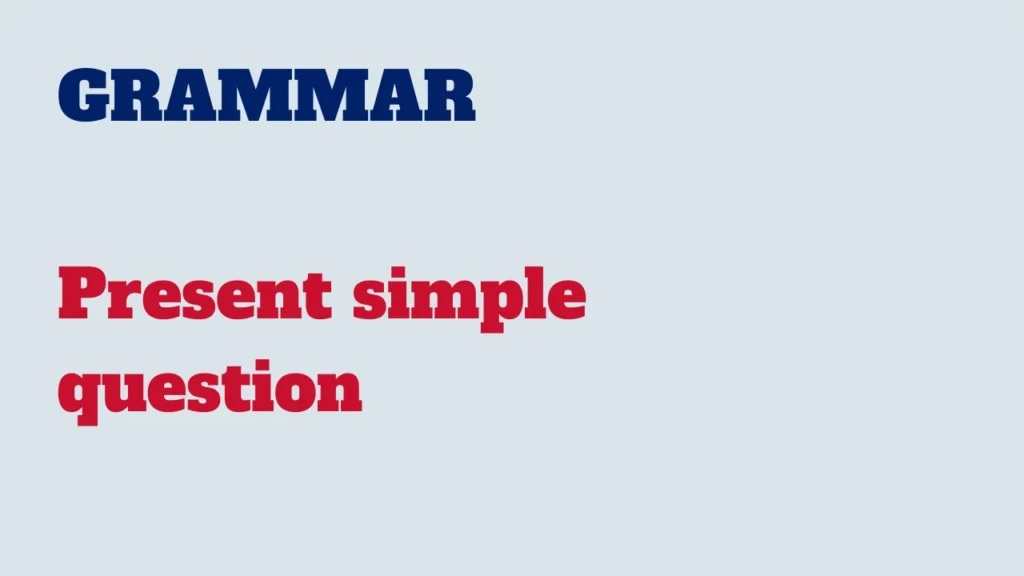In present simple questions, we use the auxiliary verb “do” (do/does) to form questions.

Here’s how to construct present simple questions:
Structure:
Do/Does + Subject + Base Form of the Verb + Complements or Additional Information
Examples:
Do you like coffee?
Does she work on weekends?
Do we have a pet?
Do they play football?
Does the sun set in the east?
Table: Present simple – question form
| Subject | Present Simple Interrogative (Question) | Example |
|---|---|---|
| I | Do + subject + base verb | Do I play the piano? |
| You | Do + subject + base verb | Do you work hard? |
| He/She/It | Does + subject + base verb | Does he read a book? |
| We | Do + subject + base verb | Do we study together? |
| You (plural) | Do + subject + base verb | Do you speak Spanish? |
| They | Do + subject + base verb | Do they enjoy music? |
Usage:
Asking about regular actions or habits:
Used to inquire about actions or habits that happen regularly.
Example:
Do you exercise every day?
Inquiring about facts or general truths:
Used to ask about facts or general truths.
Example:
Does water boil at 100 degrees Celsius?
Seeking confirmation:
Used to seek confirmation or clarification.
Example:
Do they live in the city?
Question words with present simple:
Question words like “who,” “what,” “where,” “when,” “why,” and “how” can be used in combination with present simple to ask specific questions.
Example:
What do you do for a living?
Common mistakes to avoid:
Incorrect: Does he likes ice cream?
Correct: Does he like ice cream? (Use the base form of the verb after “does.”)
Incorrect: Do they has a car?
Correct: Do they have a car? (Use the base form of the verb after “do.”)
Understanding how to form and use present simple questions allows you to inquire about actions, habits, or facts in English. Practice constructing questions in the present simple tense to enhance your language skills. Happy learning!



